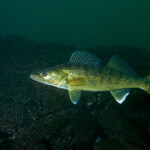Urged by industry, MSC weighs adding social sustainability standards
Industry leaders gathered on stage on Wednesday, 26 April during the Seafood Futures Forum, hosted by the Marine Stewardship Council and the Aquaculture Stewardship Council at Seafood Expo Global 2017, to discuss the industry’s biggest sustainability challenges.
The central topic of discussion was social sustainability and how it should be incorporated – or even if it should be incorporated – into the existing frameworks of major certification schemes, including MSC’s.
“This is a huge challenge for the entire industry,” said MSC’s Chief Executive Rupert Howes. “It’s an issue that the entire supply chain is concerned about, and it’s a high-risk issue.”
MSC’s board has taken steps to strengthen its stance regarding labor violations, explained Howes, and the organization is looking into how a possible risk-based approach could be developed.
“The MSC board a number of years ago made it abundantly clear that if any MSC-certified fishery or any company with a supply chain certification was prosecuted for labor violations – slave and bonded labor, child labor—they would lose their certificate,” Howes said. “Last year, they strengthened that commitment and they’ve asked the [us] to explore how MSC could potentially bring in a risk-based approach to looking at some of these labor issues. We’re currently in consultation on that.”
Volker Kuntzsch, CEO of New Zealand supplier Sanford, advocated for a possible separation between the MSC process and any social component, expressing concern that participants in a fishery who adhere to all levels of sustainability, social and beyond, may be unfairly penalized if other players in that fishery did not comply.
“Speaking from the background of having many fisheries certified down in New Zealand and having started with MSC certifications in order to get biomasses under control and fisheries management practices under control – and looking at the differences in units of certifications here: a biomass, a country’s fishery management system, as opposed to practices aboard individual vessels by companies – I would step away from including a social aspect to the MSC certification process,” said Kuntzsch. “I’d rather see one developed that might somewhere be aligned, but it should be separate because you are essentially talking about very different aspects. You may have, in practice, a fishery that’s absolutely sustainable with maybe 15 different players involved, where one may not stick to the social component as you would expect them to do, and that should not jeopardize the rest of that fishery and the sustainability of that fishery management system.”
Indeed, MSC’s core expertise was and continues to concern biomass and maintaining the health of global fish stocks, said Howes. The journey into social sustainability, therefore, is one spurred by consultation, he said.
“MSC was set up to address biomass and trying to use the program to reverse declining global fish stocks – that’s where our expertise lies. So we’ve started on this journey of consultation – we want to learn from our partners and their experience. We anticipate that there will be the need for a self-declaration and that’s under development now, done on a risk-basis for our certified fisheries and potentially, ultimately for the supply chain,” Howes explained.
Isabelle Aelvoet, global sustainability director for Mars Petcare, encouraged MSC to take a proactive approach to developing some sort of social standard if it wishes to remain a leader in the certification space.
“I think you need to be very careful, very thoughtful, but how can you be the lead in a sustainability certification label and not be addressing the social aspect? It’s something that a label needs to evolve, needs to go on a journey [with]. Is it in partnership with another certification scheme? I don’t know what the best answer is here, but if MSC wants stay the leading certification scheme it needs to start thinking about how to take the social aspect into account,” said Aelvoet.
Howes expressed MSC’s earnestness for working alongside other schemes and groups within the industry to bring an overarching social standard to bear.
“I stress that we are very open to working with others, with other schemes, in finding solutions that meet the retail and the market needs, but not necessarily provided by the MSC,” he said “There’s the RFS scheme being developed by the U.K. Seafish Authority that has huge potential, I think, to provide what’s being looked for. Fair Trade have a social standard, and others.”
Social sustainability and responsibility is not to be ignored, but it also must be approached constructively, concluded Howes and MSC.
“I think this is another facet of sustainability, it’s something that needs to be addressed within the market, we just need to work at how the most effective, efficient way of doing this can be achieved. One that gives meaningful assurance,” Howes stressed. “My big worry on this one is tokenistic approaches to trying to address the social issue that over-promise and under-deliver. That could jeopardize the value of the MSC program to all engaged.”






Share